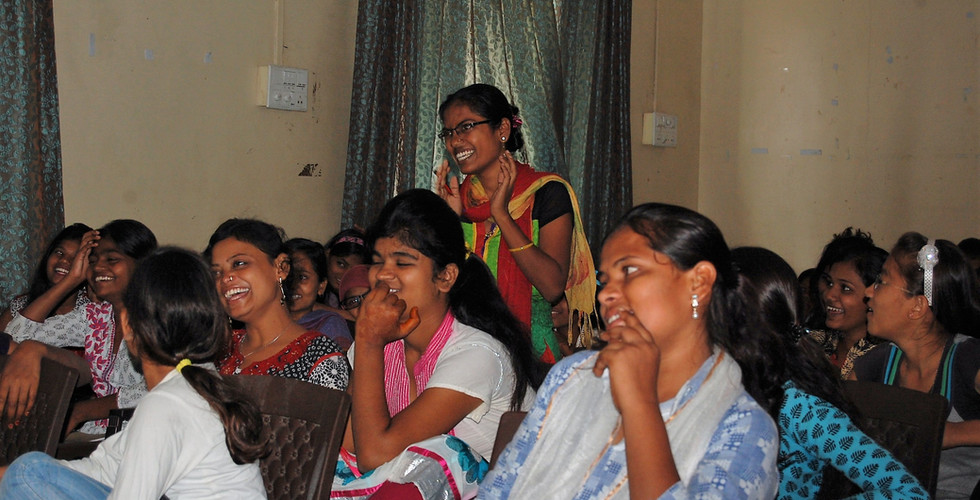Not standing still...
- Nov 6, 2017
- 3 min read
We may be taking a #StandWithMalala but we certainly aren't standing still when it comes to improving the educational prospects and aspirations of girls. Our Educate. Empower. Lead. campaign, in partnership with Malala Fund, Free a Girl and Nationale Postcode Lotterij, has got off to a flying start with a full program of activities at our Rehabilitation Center. Over the past two months, the 260 children in our care, including 74 girls in our primary target group aged between 13 and 17, have been enjoying workshops and activities aimed at improve their rights to education with the aim of preventing the commercial exploitation of children (CSEC).
Our program has included workshops on growing up and sex education, human, women and child rights and the law, gender equality, girls’ education and further information about how one girl, Malala Youszafi, has made a difference to girls’ education worldwide. The intention is to inspire and empower our girls to follow Malala’s lead to improve the state of their own education. As well as inviting prominent experts in their field to deliver the workshops, our own fieldworkers from Childline and our education projects have shared their insights and expertise helping our beneficiaries to better understand the dangers and risks that a full education can help prevent.
We want our children to play an active role in this program and are giving them the opportunity to feedback on each activity to see what is working well for them and where we can improve our program. We have been blown away by some of the intelligent and insightful responses we are receiving and are making sure that all of the participants comments are listened to, acted upon and fed back to them. One example is that when it was noted that boys should have been represented at our gender equality session, we immediately planned another day of activities where girls and boys were required to work together in teams. It was pitched as a day full of fun held as part of our Diwali program but also successfully demonstrated the differences in strengths and abilities between the genders. A particular highlight was a football game between the boys and the girls with the boy wearing saris to better understand the restrictions that something as simple as dress can have on performance.
Other highlights have included a talk from our founder, Girish Kulkarni, explaining how the foundations of Snehalaya are firmly rooted in education equality and hearing from two sex workers not only about how their own life choices were restricted by limited education but how Snehalaya has since given them the confidence and opportunities to develop into leadership roles as social workers. Our girls’ education workshop asked what are the restrictions faced by those living in our shelter home and some of the resulting issues and the girls’ own solutions to them were addressed to key influencers such as the State Education Minister. We intend to post these letters and also allow the girls to ask the same questions through other channels such as social media and our community radio station.
This is just the start of our program, we have committed to reach over 3,600 girls throughout our district and we are now replicating some of these activities in our Balbhavan (slum community centers). We kicked off with a screening of He Named me Malala to over 100 girls on 5 November and over the next two months they will also attend the same workshops, with a few modifications made in response to our Rehab Center girls’ feedback. Following this we will continue to empower girls through education in our red-light areas and other communities within our district and beyond, all of which complements our mission to continue to ensure there are no underage sex workers in our district and to protect those at risk of trafficking and exploitation.



























